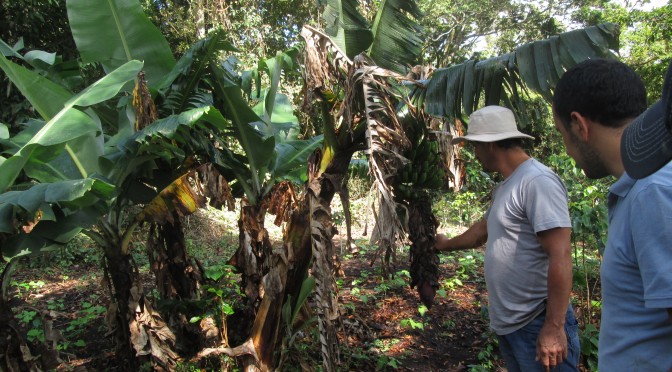There are many things that separate organic coffee farms from the rest. Organic farms use no pesticides or herbicides on their crops, they use organic materials as fertilizer and there is a spacing of the plants. For instance on Oldemar’s farm there are many other different kinds of plants intermixed with the coffee plants. Different kinds of crops take different nutrients from the soil. The more diverse your plant base is, the more nutrients each crop has access to in the soil. Oldemar had orange, banana and coffee plants all intertwined on his property. This separation also cuts down on the bacteria that can pass from one coffee plant to the next. Organic farms also use organic materials as fertilizer. Oldemar uses the shells of coffee beans past in order to fertilize the coffee plants. This is an extremely green way of using fertilizer. There are also no pesticides or herbicides on his farm. This is shown easily by the presence of bees. Bees are extremely sensitive to pesticides and will not make nests within miles of them. There were bees all over Oldemar’s farm, happily making honey. One of the biggest disadvantages of being organic is that without pesticides and herbicides, there is no way to combat coffee killing fungus. Costa Rica in general has had a problem in recent years with a fungus that comes in and kills coffee plants. In order to stay an organic farm, Oldemar cannot use chemicals to combat this fungus, so his plants sometimes die. This is where the spacing comes in. If the fungus cannot be transferred from one plant to the next, not all of the plants will die. Having other crops in the same field has generously reduced the fear of loosing the whole farm.

